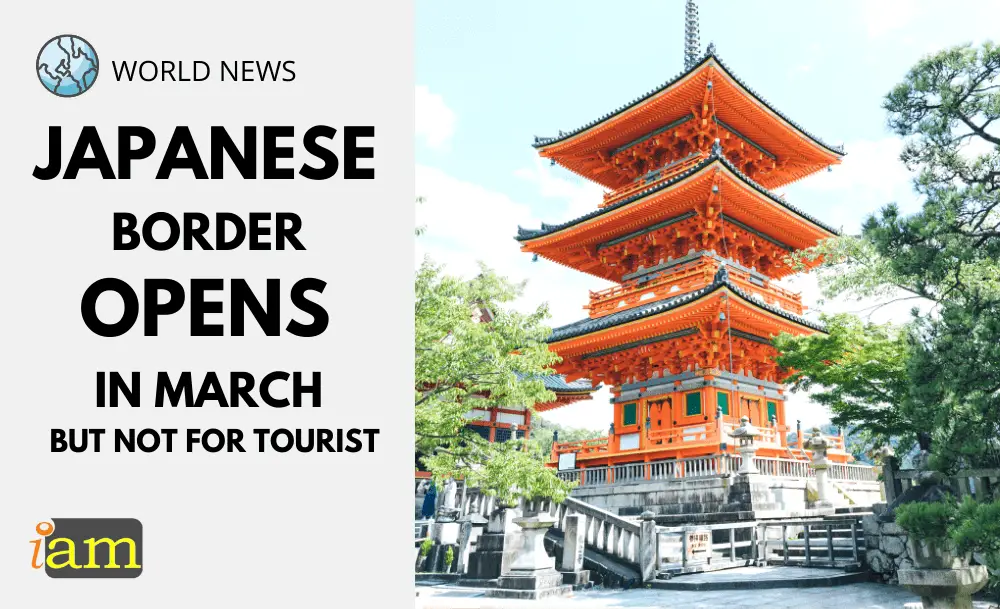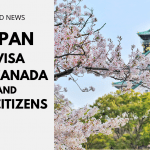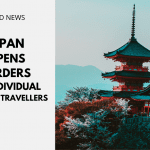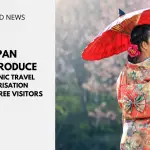Japanese Border Will Open in March But Not For Tourist

The Japanese government is now deliberating over border restrictions after the sixth Covid-19 wave that has hit the country.
“We hope to gradually increase international travel while taking into consideration the infection situation at home and abroad, as well as the demand of Japanese returnees,” Prime Minister Fumio Kishida said at a House of Councillors Budget Committee session.
Japan’s borders will still be closed to tourists. From the beginning of March, only foreign residents, business travellers, and international students will be allowed to enter.
The daily cap on the number of new arrivals will be increased from the current 3,500 to 5,000.
For those who can enter Japan, you would need to prepare these certificates and documents:
- A Covid-19 test certificate – within 72 hours of departure,
- A signed copy of the Written Pledge,
- And a completed questionnaire that’s administered by the Ministry of Health Labour and Welfare
At present, Japan only recognises the Pfizer, Moderna, and AstraZeneca vaccines. And, from 1 March, Johnson & Johnson will also be approved for arrival into Japan.
Quarantine For Arrivals
There will also no longer be a three-day isolation period from travellers who test negative for Covid-19, from countries like:
- Australia
- Spain
- Thailand
- The Philippines
- The US
The quarantine period will be cut from the current six days to three for travellers from 37 countries.
Quarantine requirements are as follows:
- If you are from one of the 37 countries on the list and have not received a booster shot, a three-day quarantine at a designated facility and a negative test on the third day is required.
- If you are from one of 37 countries and have received a booster shot, a three-day quarantine at home or a venue of your choosing and a negative test on the third day is required. If you don’t take a test, you need to be quarantined for seven days.
- If you are not from one of the 37 countries and have not received a booster shot, a three-day quarantine at home or a venue of your choosing and a negative test on the third day is required. If you don’t take a test, you need to be quarantined for seven days.
- If you are not from one of the 37 countries and have received a booster shot, you will be exempted from quarantine.
Countries designated as omicron hot spots:
| Albania | Iran | Peru |
| Bangladesh | Iraq | Russia |
| Brazil (Sao Paulo and Parana) | Jordan | Saudi Arabia |
| Cambodia | Lebanon | Singapore |
| Canada | Maldives | South Korea |
| Denmark | Mexico | Sri Lanka |
| Egypt | Mongolia | Sweden |
| France | Myanmar | Switzerland |
| Germany | Nepal | Turkey |
| Israel | Norway | United Arab Emirates |
| India | Oman | United Kingdom |
| Indonesia | Pakistan | Uzbekistan |
| Italy |
Do you have plans to visit Japan? Talk to us in the comment section below.
Check out the deals we have found below and tell us your travel plans.
Check out the offers and discounts from:
And because of the pandemic, don’t forget to get your travel insurance, which will cover you for flight disruptions and pandemic related matters.
IaM can help with your visa application to the United States, the UK & other countries
If you need help with a US visa, a UK Visa, or visa to Europe, including help with appointment booking obligations, IaM can help. For more information and advice on US immigration, UK immigration law and US visa applications or if you need any help or assistance please, reach out to your Visa Coordinator at IaM.
Some of our posts include affiliate links. If you choose to purchase any of these products, we might get a small commission. For more information, check out our TOS.










